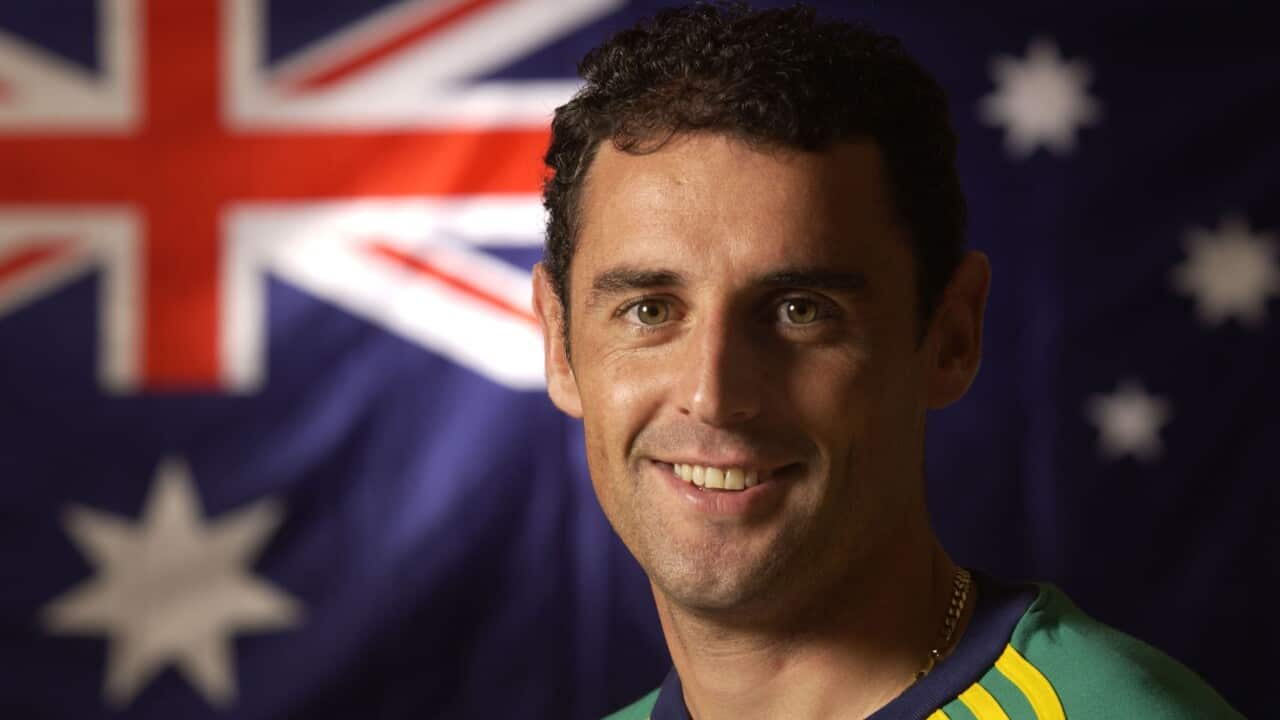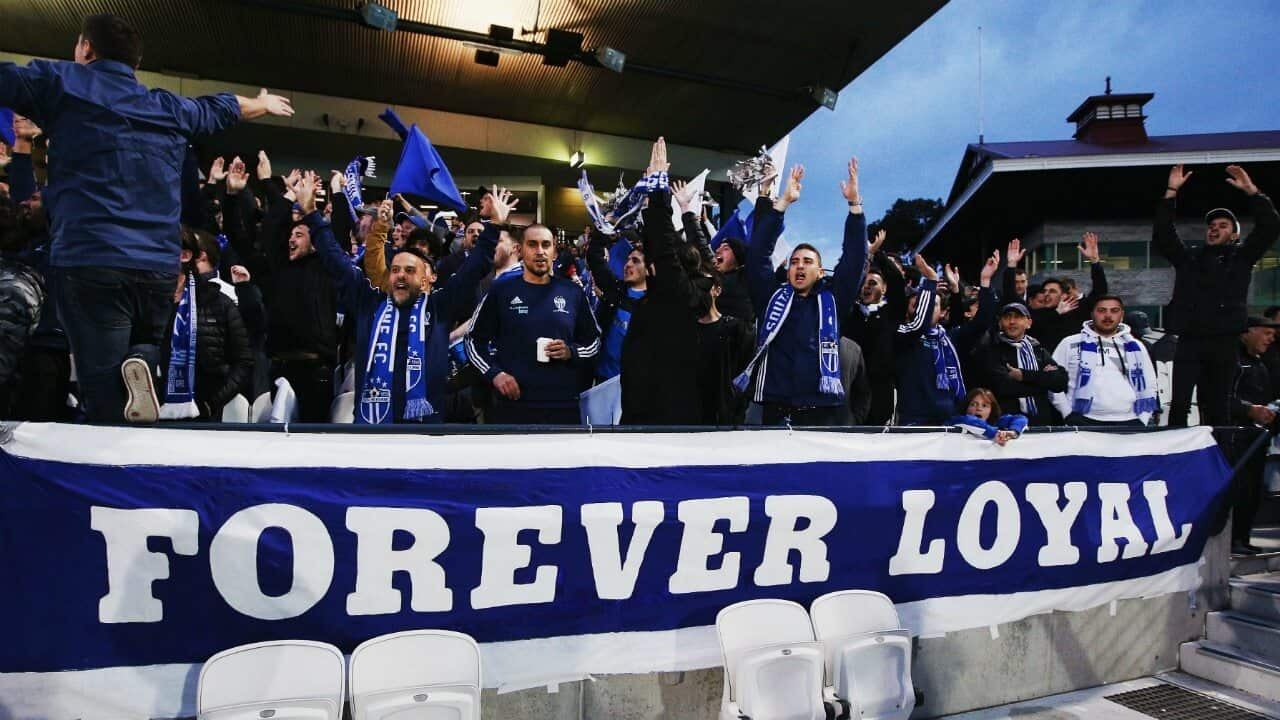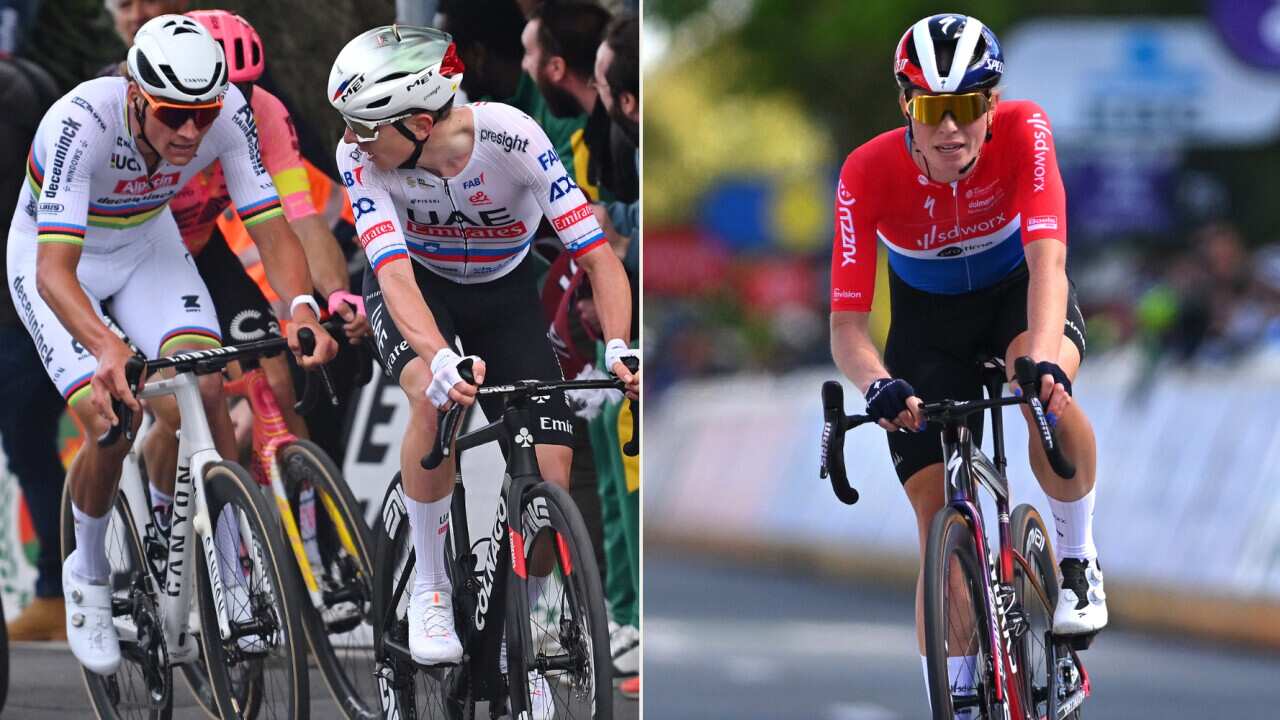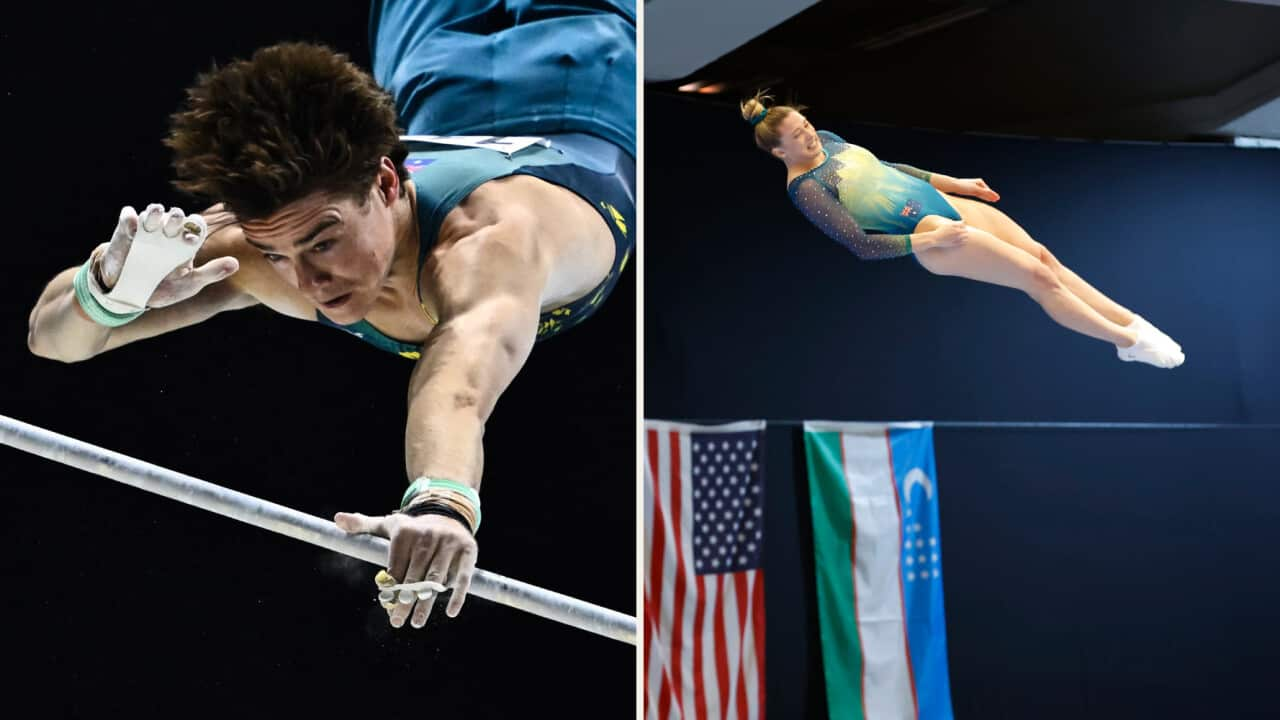Former Socceroos defender Jim Tansey is convinced the seeds that produced the spirit of Australia's much-loved 'golden generation' were sown on a cold winter's night in London in 2003.
The seminal moment was an international match between England and Australia at Upton Park when the Socceroos sprang a surprise by winning 3-1 with goals from Tony Popovic, Harry Kewell and Brett Emerton.
The Australia team that outplayed their English opponents were a very special group of players and most of them would go on to help the Socceroos qualify for the 2006 World Cup, where they played with great courage and distinction to reach the round of 16 amid widespread admiration.
Tansey, who played 20 full internationals for the green and gold, has no misgivings about where the team's character was formed.
"I firmly believe that the spirit of the 'golden generation' was born on that memorable February night in east London," Tansey, 67, said.
"I was at that game when the Socceroos won 3-1 after a brilliant performance.
"Frank Farina was coach and the boys were just amazing. It was a great game for Australia.
"The 'golden generation' played superbly at the World Cup in Germany but you know where that 'team' was born? For me it was the night we beat England in their own backyard."
Tansey said the historic result sparked an "absolute boom" in the game's popularity in Australia.
"When I came back home I got inundated with calls from parents, players and agents asking me for support in my role as adidas marketing manager for Australia," he said.
"The number of requests I received for sponsorship of players increased by 10 times after that game. And that was just me.
"It was the moment in which the game in Australia took off. Everybody suddenly wanted to be a Harry Kewell or a Mark Viduka."
Liverpool-born Tansey, who was one of the best and most consistent left backs in the now defunct National Soccer League, was happy to share some of the best moments of his career.
What are you doing now?
"I retired from adidas about 18 months ago after 36 years. I had a year off during which I went to England to see my mother who was on her own. But retirement did not last long because I got a job with a golf company in my home town Melbourne. I am enjoying it because I do not travel any more and I do not have too many meetings. I also finish at two in the afternoon which gives me enough time for my daily exercise and any chores my partner Jane gives me every other day."
Your father Jimmy played fullback for Everton from 1953 to 1960. Were you old enough to remember him playing?
"My earliest memory is of my mother taking me to Goodison Park as a six-year old and trying to point out my father on the pitch. The ground was old and had wooden stands. It was standing only and the crowds were massive so when Everton scored a goal the noise was just enormous. I also remember waiting with my mum for him to come out of the ground after the match.
"Dad played more than a hundred games for Everton so he used to be away a lot because in them days whenever they played in London, for example, they used the trains which were a lot slower than today. The worst part was when he was not at home at Christmas (which is traditionally a busy football period) so my brother and I never got our presents on the day. I savour the time I spent reading about my father and the team in the match programs. They were great days."
You made the long trip to Australia in early 1974. Playing for unfashionable Prahran in the Victorian state league must have been a culture shock.
"I was playing in the northern premier league in the United Kingdom and one day - it was a Saturday - a guy approached me and asked me if I wanted to play in Australia. I was only 20 and rather naive so I said 'yes', expecting things to start happening in six months or whatever. But in five days I was on a plane to Australia. I arrived in Melbourne and was told I was to play for state league side Slavia Prahran and they put me in a 'hotel' for a month. All I will say is that the hotel did not deserve any star at all.
"When I arrived I was taken to our Olympic Park home ground to watch an Ampol Cup game between Heidelberg and South Melbourne. There were about 20,000 people there so you can imagine my surprise when I played my first game for Prahran in front of two men and a dog. Sometimes if it was a bad game the dog went off. Prahran did not have a following. So yes, it was a huge culture shock.
"I totally loved the game but in those days you also had to have a job. They were not easy by any means. I worked on a construction site for six days, then played a game on the Sunday and was back to work the next day at seven hopefully without a bad leg after somebody had kicked you."
It must have been easy to agree to join Fitzroy and play in the first National Soccer League in 1977.
"That was an amazing time. The game was taking off and the national league was starting. I had had a good season for Slavia before I signed for Fitzroy, where I would stay for seven years.
"The president was Jim Mangopoulos, a lovely man with whom I got on very well. From the start we had some good coaches and were well organised. I also had the opportunity to play against some very good foreign teams like New York Cosmos, AEK Athens, Red Star Belgrade, Legia Warsaw and Rangers. These games drew massive crowds and the gates were shut well before the Cosmos game kicked off.
"It was the best period of my career no doubt."
Fitzroy became Heidelberg United in 1979. Were the 'Greek derbies' against South Melbourne your biggest matches of the season?
"You knew from weeks before that those games were the ones that mattered most. We could have been having a bad season but as long as we beat 'Hellas' everything was okay. 'You've got to win,' was all we heard from the supporters. We had some strong sides including Gary Cole, Theo Selemidis, Jimmy Rooney and John Yzendoorn and had some great games with 'Hellas' and the crowds especially when we were away at Olympic Park were something else.
"I remember a particular bonus we were promised one day that was based on the number of goals we scored and we beat 'Hellas' 5-2. I tell you it paid for half of my wedding reception a couple of weeks later."
Heidelberg came very close to winning their only championship when you guys missed out by a mere point to Sydney City in 1980. Was that the one that got away?
"That was so disappointing. We probably lost it in our second-last match of the season when we played Newcastle United away. We were one-nil up but they came back and beat us 3-1 with two very late goals. We were so close and yet so far but, hey, that's football.
"Sydney under coach Eddie Thomson had a top side so credit to them. We were always up there or thereabouts but they always seemed to get the lead on us.
"We however got our revenge in the grand final when Cole was on fire and scored a hat-trick in a 4-0 victory but they got the one that mattered most. Those days the champions were those finishing first past the post."
You caught the attention of the national selectors when you were still playing in the state league. The three-match series versus the Soviet Union must have been a baptism of fire for you in 1975.
"My first call-up came as a shock. I originally was named in a B-squad that was playing some state team but Harry Williams, who was Australia's first choice fullback, got injured and I got to make my Socceroos debut against the Soviet Union at Olympic Park. We lost 2-1.
"I will always be grateful to players like Peter Wilson, Peter Ollerton and Rooney who took me under their wing when I first played. We have remained friends ever since."
You did not seem to be in coach Jimmy Shoulder's plans for the disappointing 1978 World Cup campaign. How come?
"Well, I played in a few of the lead-up games but not in the important qualifiers. When I joined Fitzroy coach John Margaritis one day said to me "I've got too many fullbacks so you can play one game and Vince Bannon can play the next week". It was very hard to accept when you trained all week. By the end of the season I forced myself into the team on a regular basis but in terms of the national team the on-off club scenario did not help."
You were involved in the following campaign for 1982 under Rudi Gutendorf but Australia were virtually out of it very quickly after the 0-2 defeat to New Zealand. What's your take on that painful defeat at the SCG?
"We have to put our hands up and concede we did not play well because we were not well prepared. Defensively New Zealand were very well organised and we could not break them down. They waited for the chances and went on to score two goals that effectively knocked us out. It was a bad day for us and they were the better team, no point denying it."
Many people believe that the standard of club football has not improved with the advent of the professional A-League. What do you reckon?
"I can say without doubt that today's guys are fitter and many are technically better. But, you know what, there is little or no passion in the game. Some of the semi-professional guys we used to play with like Cole and John Kosmina would have been amazing today. Some of the games are amazing and some of the imports are really good. But you get a big drop in the bottom half of the league. In my days we had more depth and the competition was much closer. The salary cap does not seem to be working.
"There also is a distinct lack of depth in the player ranks. We have an incredible number of kids playing the game but not many are capable of making the big leap to professional football."
You must have a soft spot for the NSL clubs that were marginalised to make way for the A-League in 2005. How important is a second division and a chance for promotion to the more ambitious NPL clubs?
"If the clubs want to gauge their strength - and I'm forgetting finances here - there has to be a second division, a stepping stone.
"There are a lot of ambitious clubs but we can't have a straight promotion and relegation because they have to build their finances, squads and support bases to make it work. But this pandemic has created lots of question marks."
The Socceroos are on track to reach their fifth straight World Cup. How do you rate the team?
"Potentially they can be a very good side. Maty Ryan and Aaron Mooy are doing very well in Britain but there is little depth. So the key is the boys have to stay fit for the team to reach the World Cup. Daniel Arzani, for example, was on fire before he got badly injured and has been missed."
Lastly, who are the best players you have played with and against at club and national level?
"At club level the best I've played with was Cole who scored many goals for us at Heidelberg and earned us so many bonuses while on a national level it was centre-half Wilson, who was an inspiring captain.
"The best player I came across domestically was striker Eddie Krncevic, a player I hated because he always scored against us.
"On the international front it would have to be West German sweeper Franz Beckenbauer whom I faced twice when Victoria and the Socceroos played Cosmos in 1977. He was elegance on the ball personified, a class above everybody else.
"I was impressed with defender Terry Butcher when we met England in 1980. He was not the most stylish of players but he gave 100 per cent plus in every game."
JIM TANSEY FACTFILE
Club career
1974-1976: Prahran Slavia
1977-1983: Heidelberg United
1984: Footscray JUST
International career
1975-81: Australia (20 matches)













